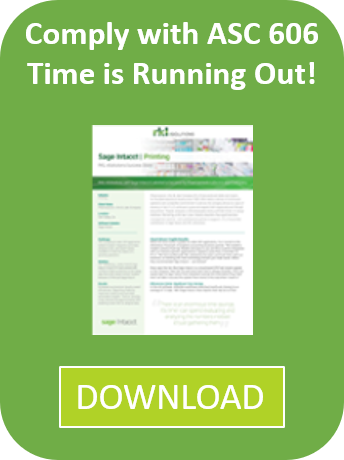If you have revenue coming in from contracts or subscriptions and have entertained the idea of using spreadsheets for revenue recognition criteria reporting under the new ASC 606 and IFRS 15 standards, I urge you to reconsider.
Usage-based billing, accounting, or forecasting with spreadsheets under the new guidelines are going to be close to impossible. Here’s why the new guidelines make it difficult to use spreadsheets:
- Contracts drive revenue recognition and expense management. Contract information and terms should be kept in an electronic database so they can be used in revenue calculations. Any changes to contracts terms will need to be made in the database.
- Contract changes due to add-ons, discounts, upgrades, etc. require reallocation of revenue and expenses across the contract, even over accounting periods that are already closed.
- During the transition to the new guidelines you will use dual reporting, which means having two sets of financial books. This will involve having to record revenue and expense under both sets of rules, old and new.

Granted, with macros and formulas you can automate a lot of calculations, but a formula can be mistakenly changed and a macro can be inefficient and slow, and sometimes they fail. Let’s not forget that a lot of companies don’t use cloud storage solutions like Google Drive or DropBox. In those companies spreadsheets live in hard drives—local or shared—and those could crash. Imagine having to restore your spreadsheets from the most recent backup copy. No matter how often you or your IT save your files, you will always lose some data.
An integrated accounting software solution is recipe for success
What you need is an integrated solution that handles revenue from contracts and subscriptions seamlessly and automatically. An ideal solution should include the following features:- automatically reallocates revenue and expenses when a contract changes,
- applies both sets of rules to each transaction, and
- provides you with dual financial reporting functionality to help you transition from the old to new reporting rules when contracts span the cutover period.
Before the new standards take effect—in 2018 financial reports for public companies and in 2019 financial reports for private companies—make sure you have a system that is up to the task. It may be time to seriously consider cloud accounting software.
Out-of-the-box, Intacct, the best-in-class accounting cloud solution, offers a Contract Management module that meets the new guidelines and requirements: reallocations for changes, deferral of expenses, and dual treatment during transition.
Intacct Contract Management provides sophisticated reporting and metrics to produce P&Ls by contract; track unbilled, billed, and paid revenue; and to streamline billing and revenue forecasting. And with contract checklists and sign-off audit details you will breeze through internal and external audits with automated audit readiness.
Make sure you’re ready for the new FASB and IASB Revenue from Contracts with Customers guidelines with this formula:
| RKL + Intacct Contract Management + ASC 606 + IFRS 15 = Compliance + Transparency + Peace of Mind |




